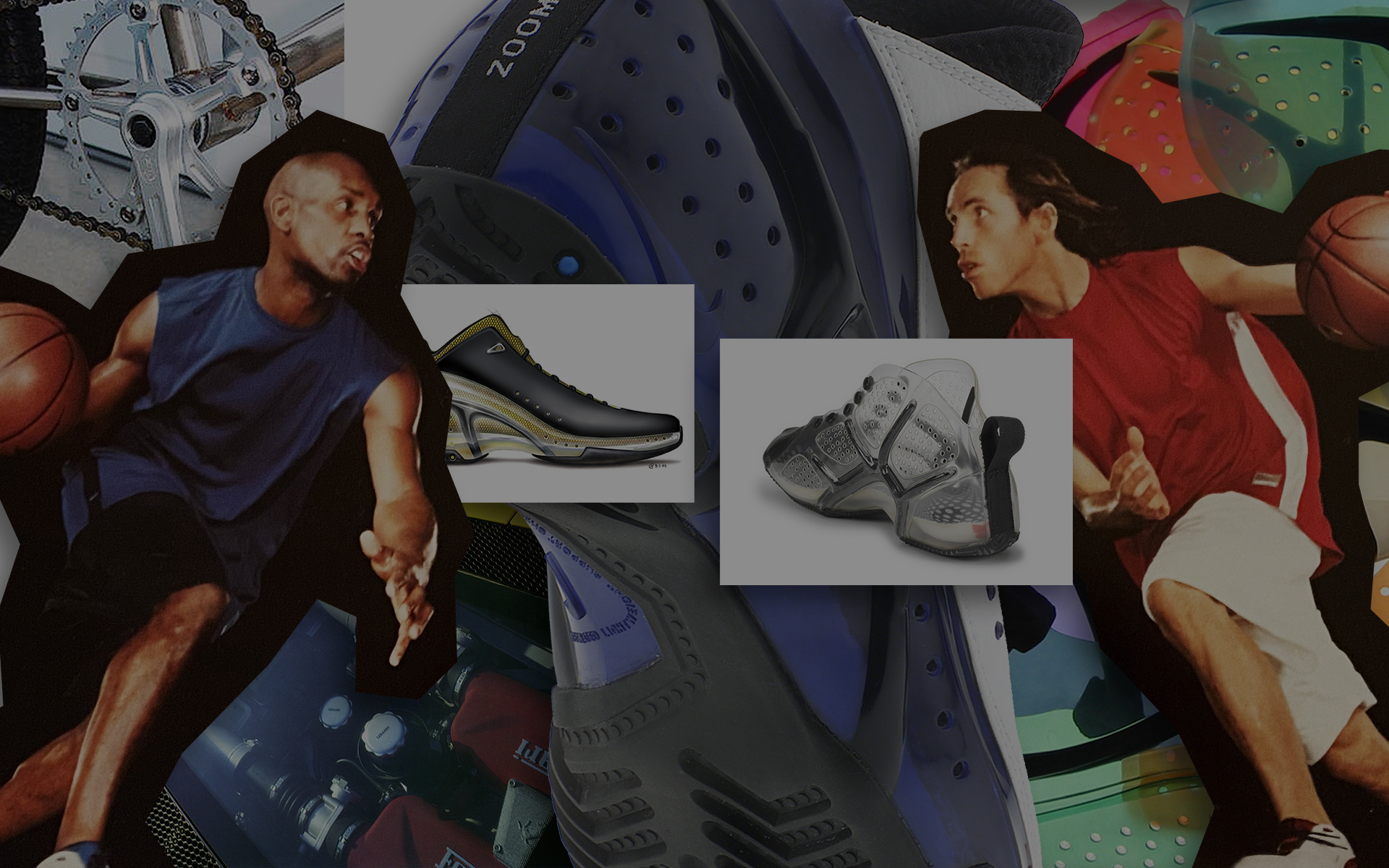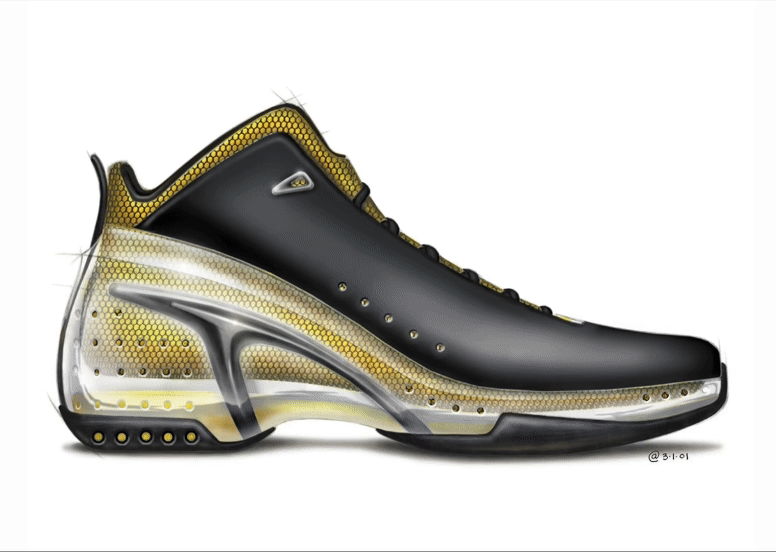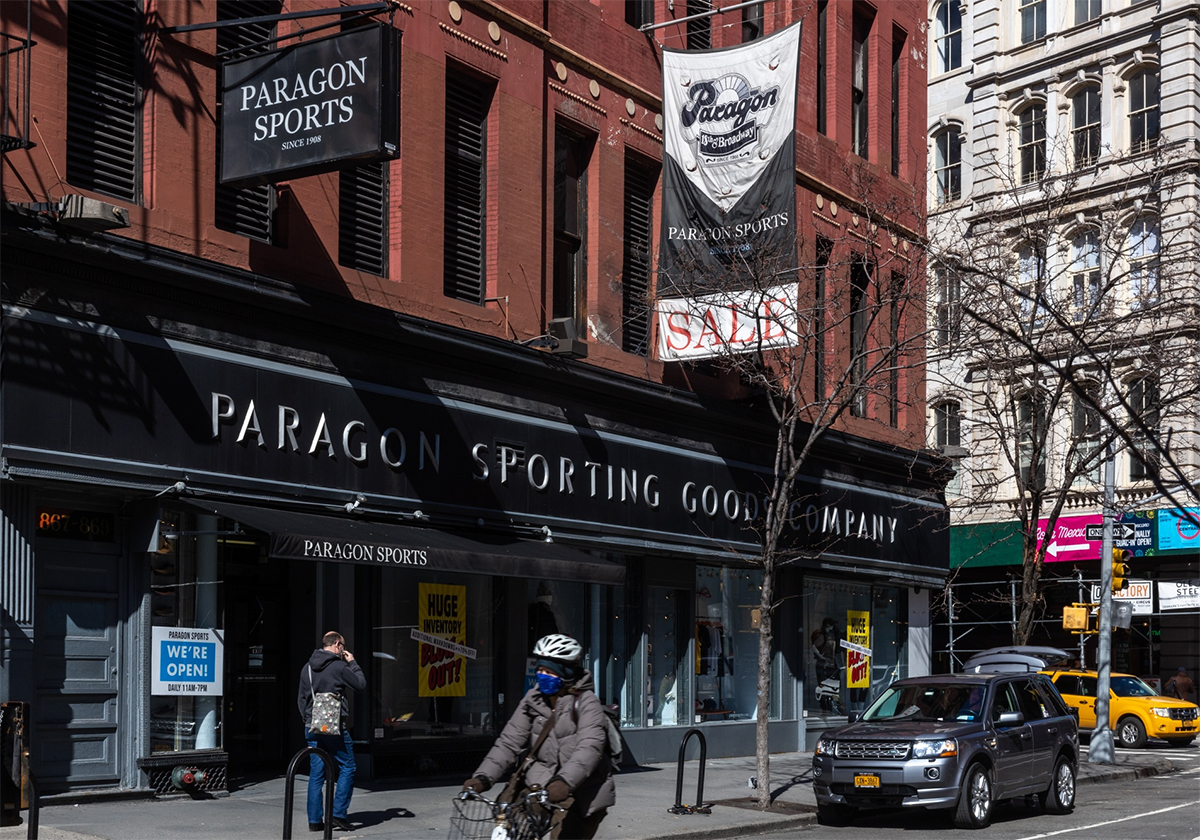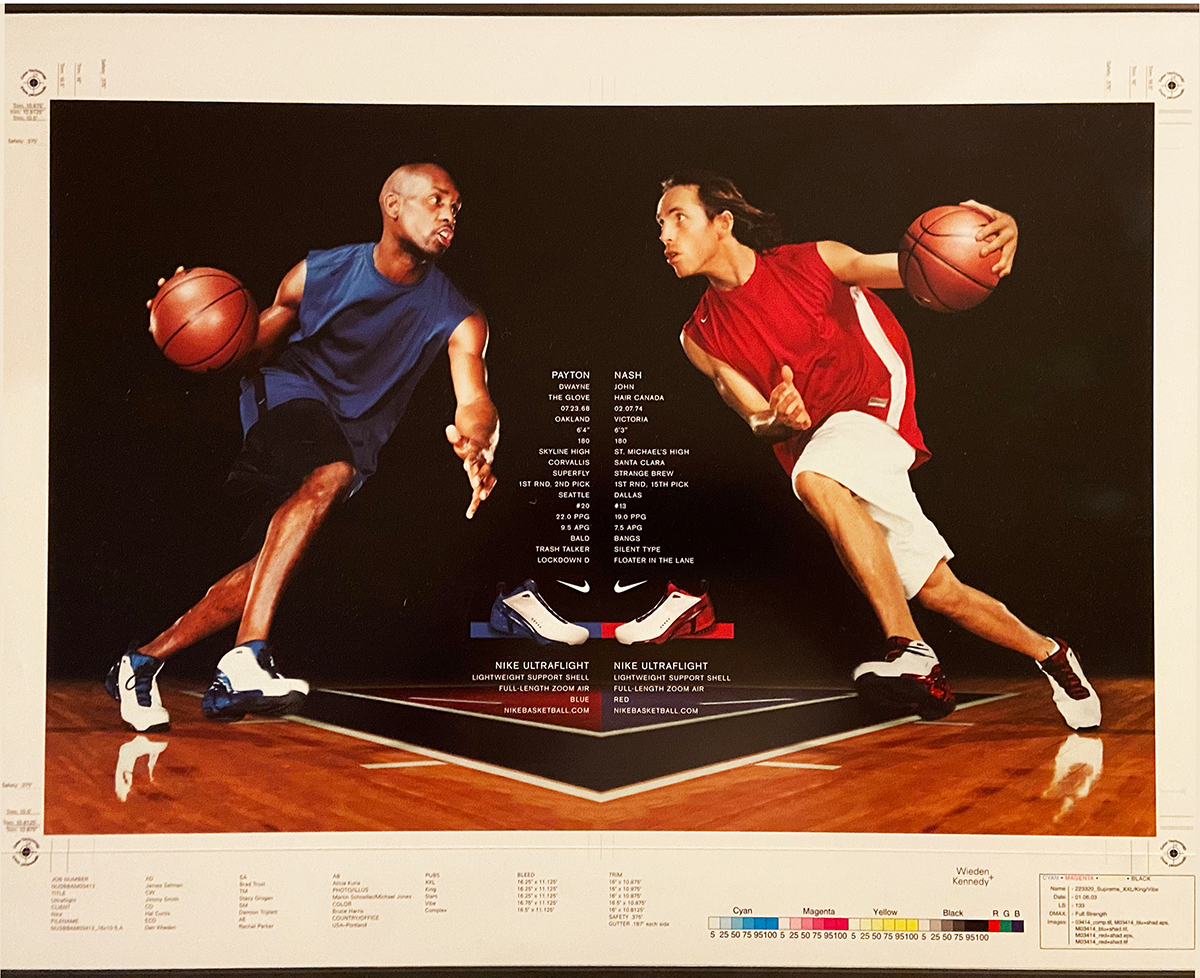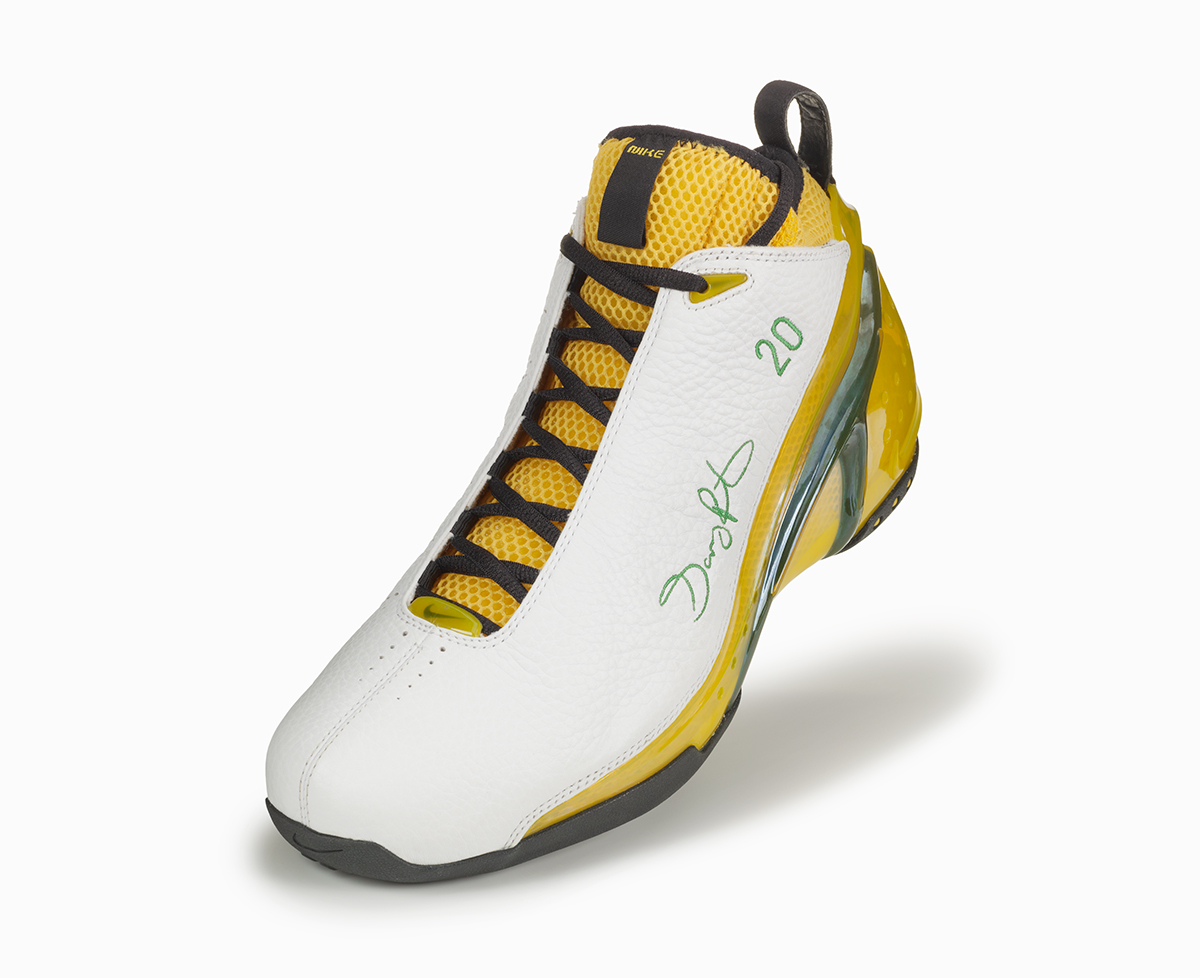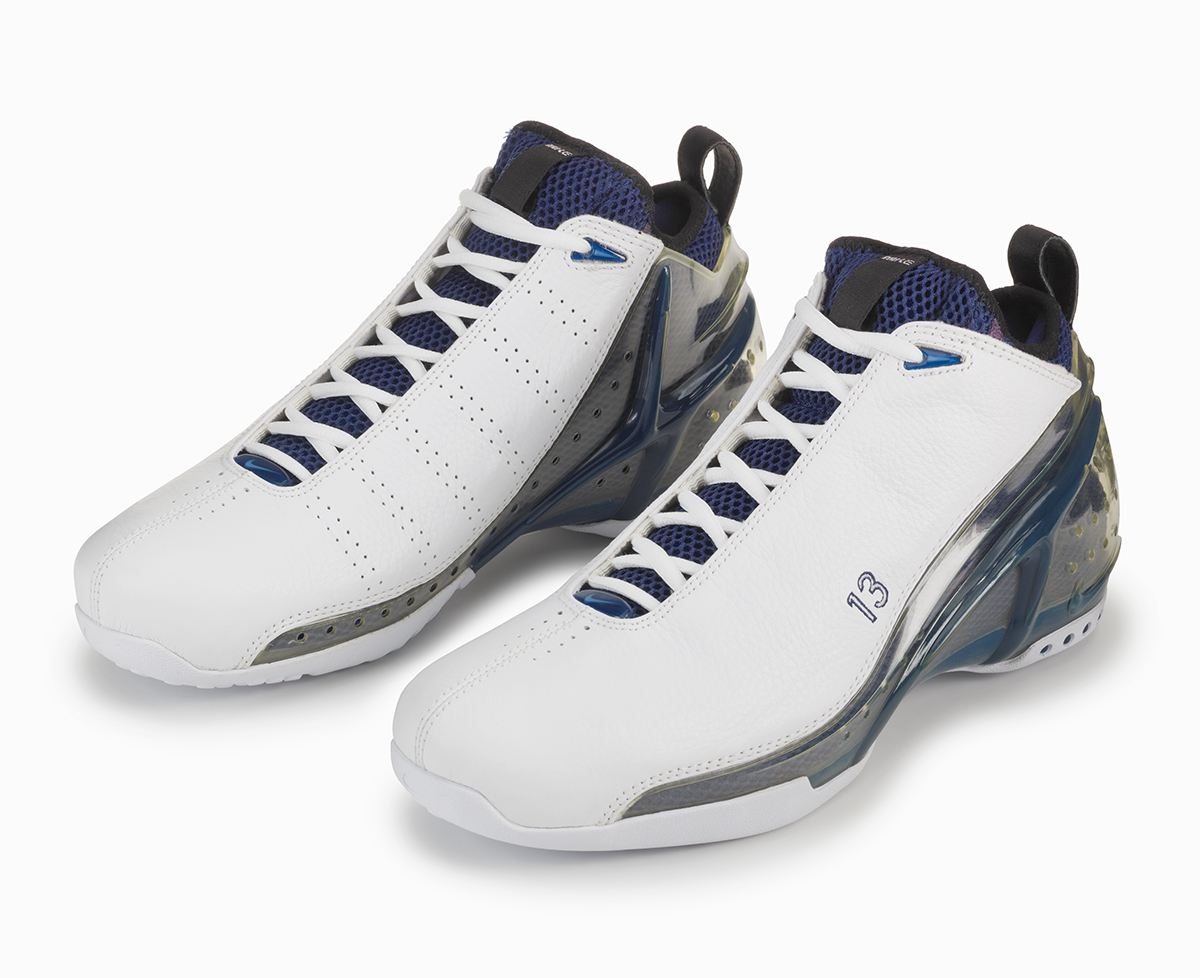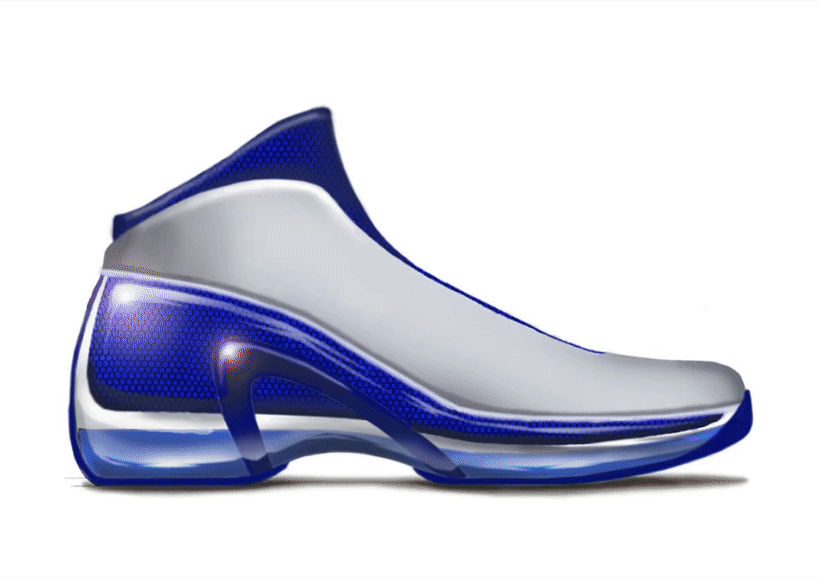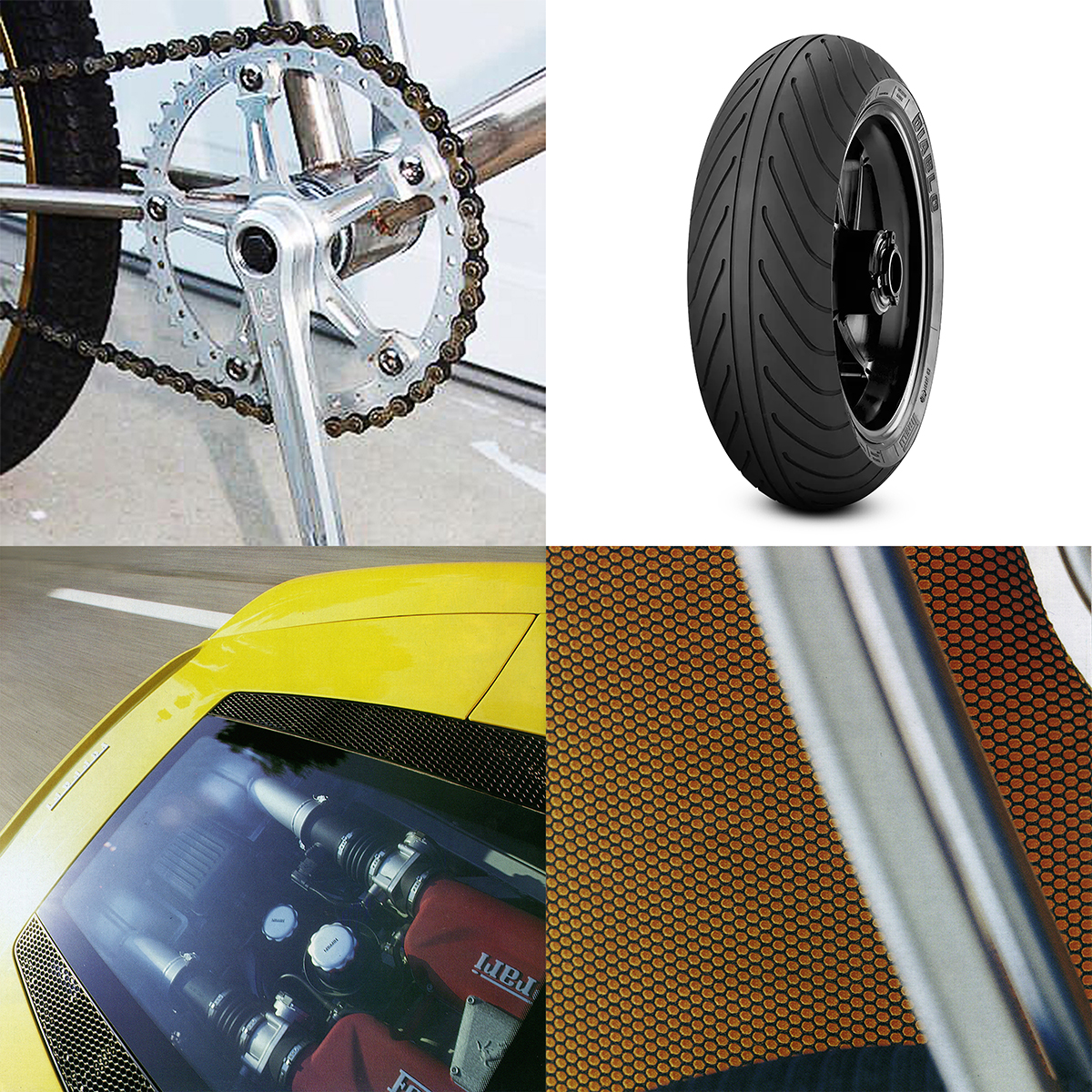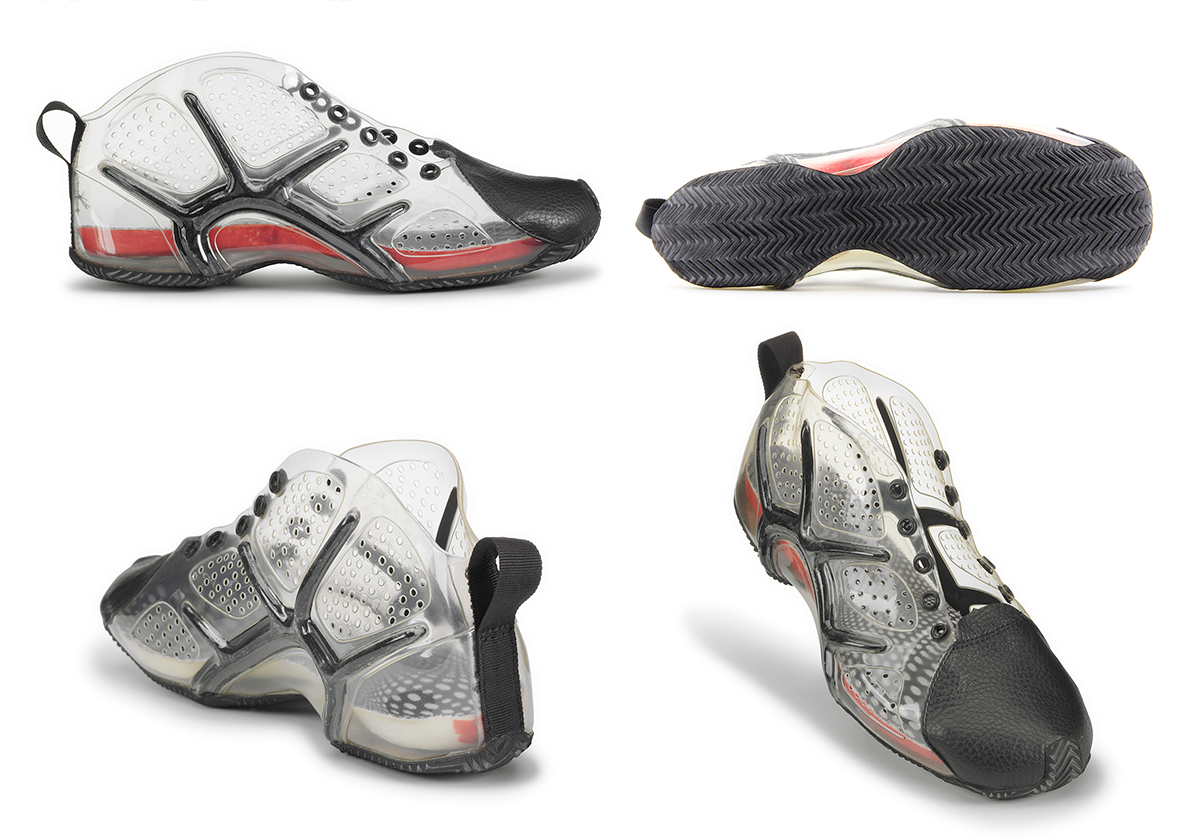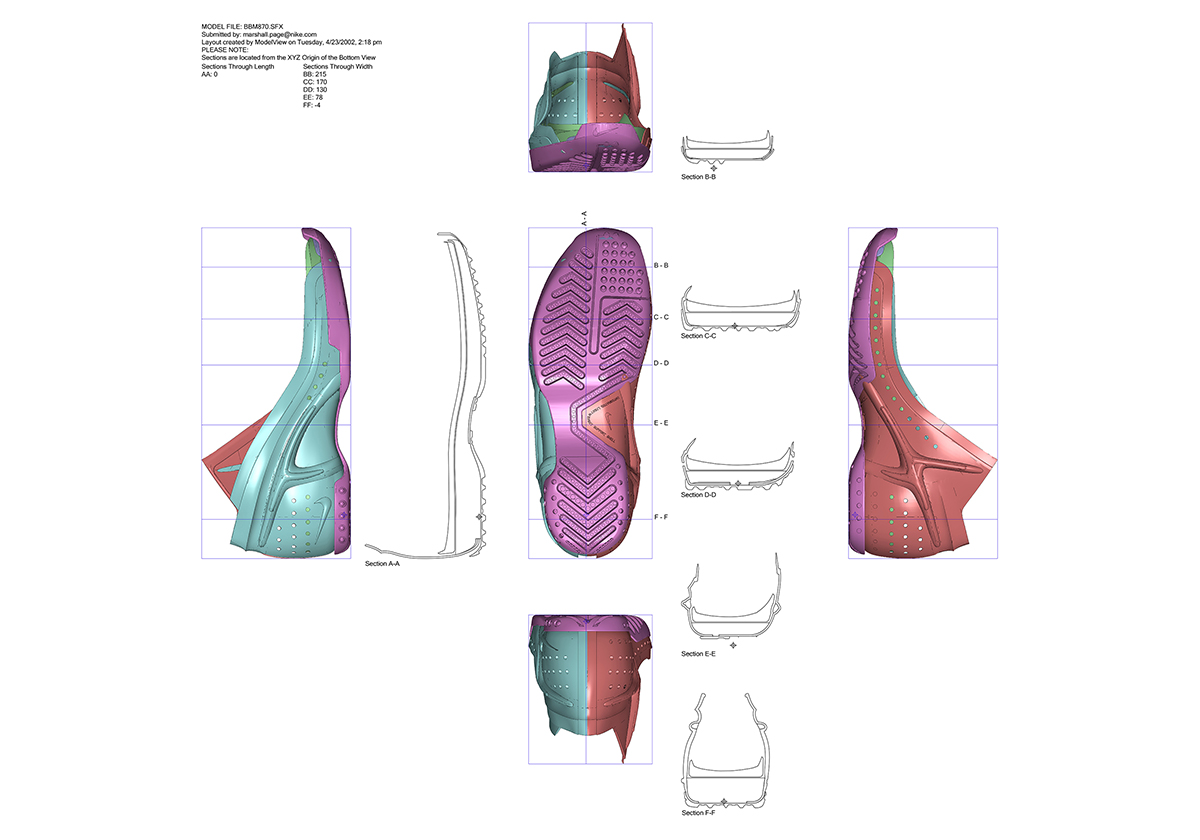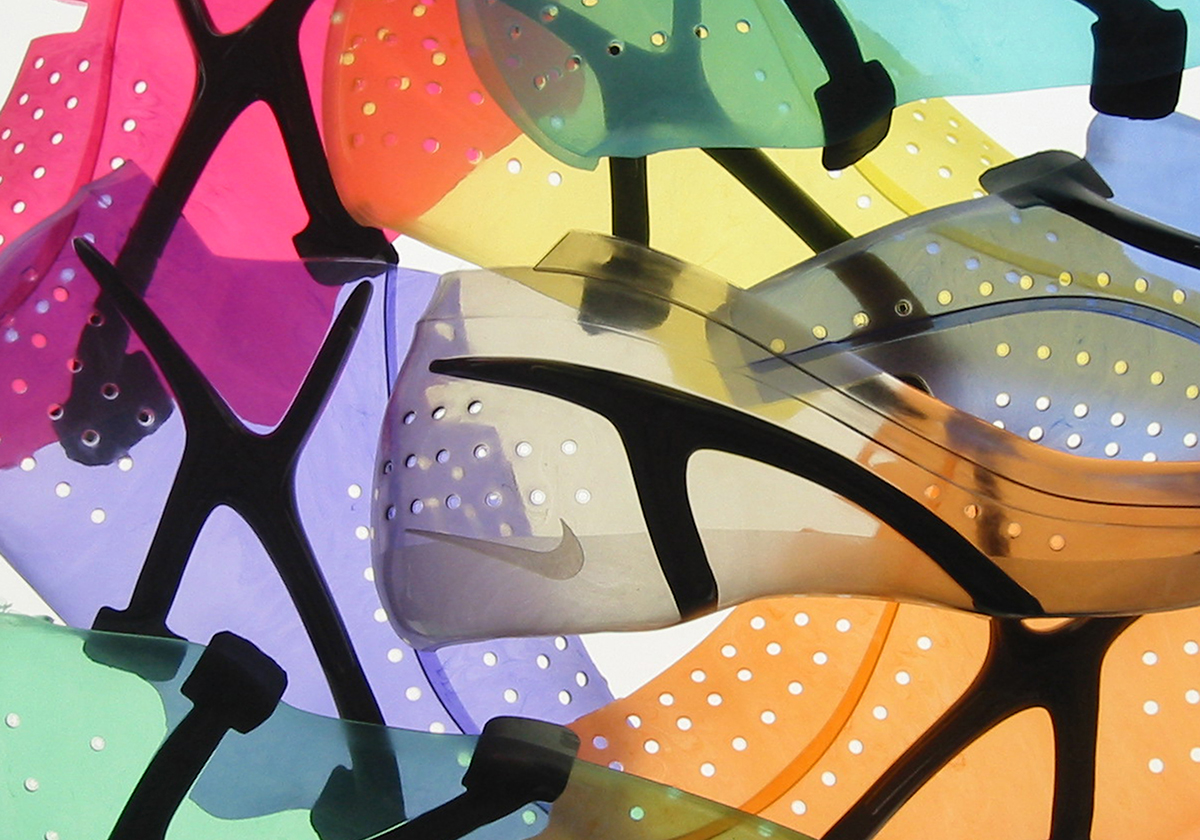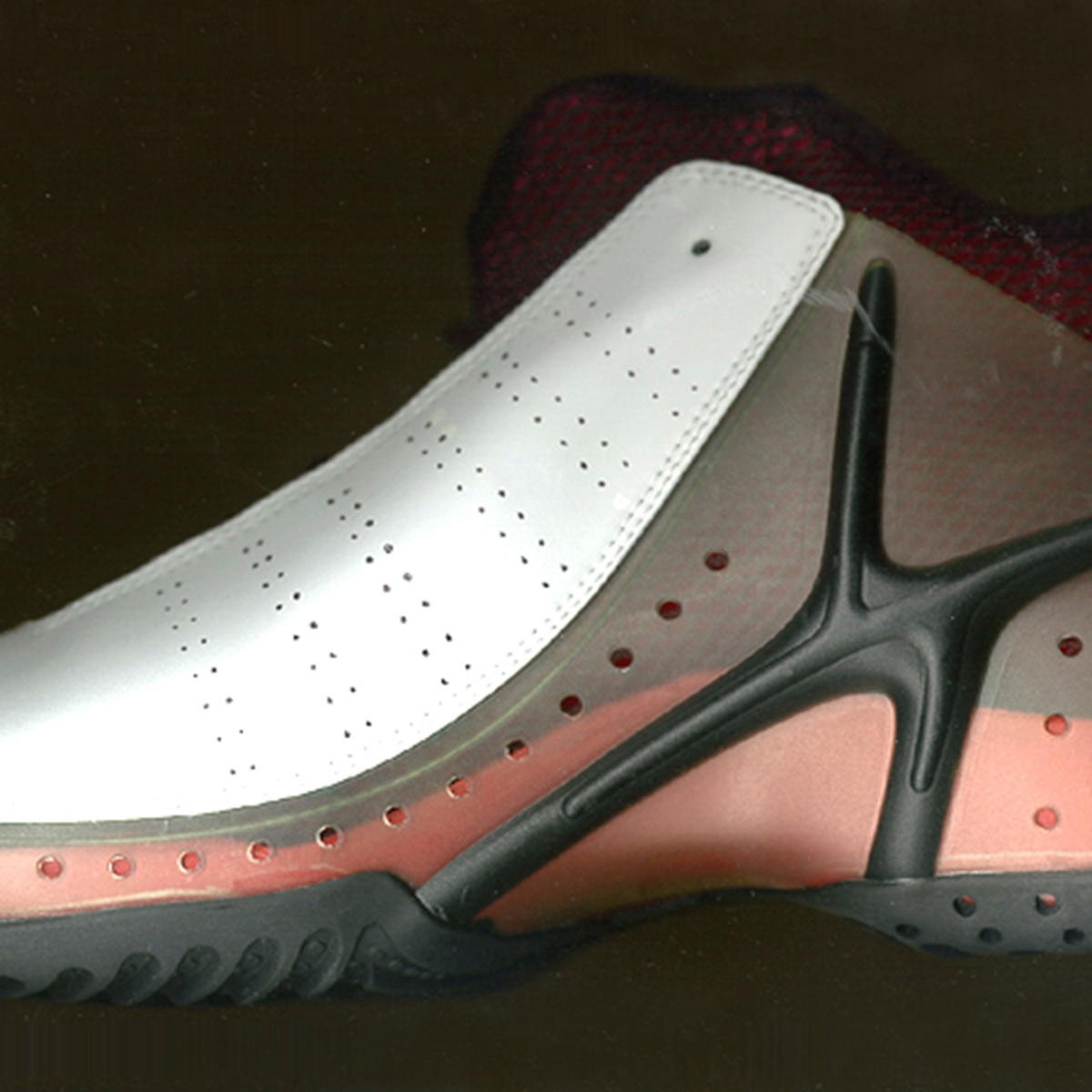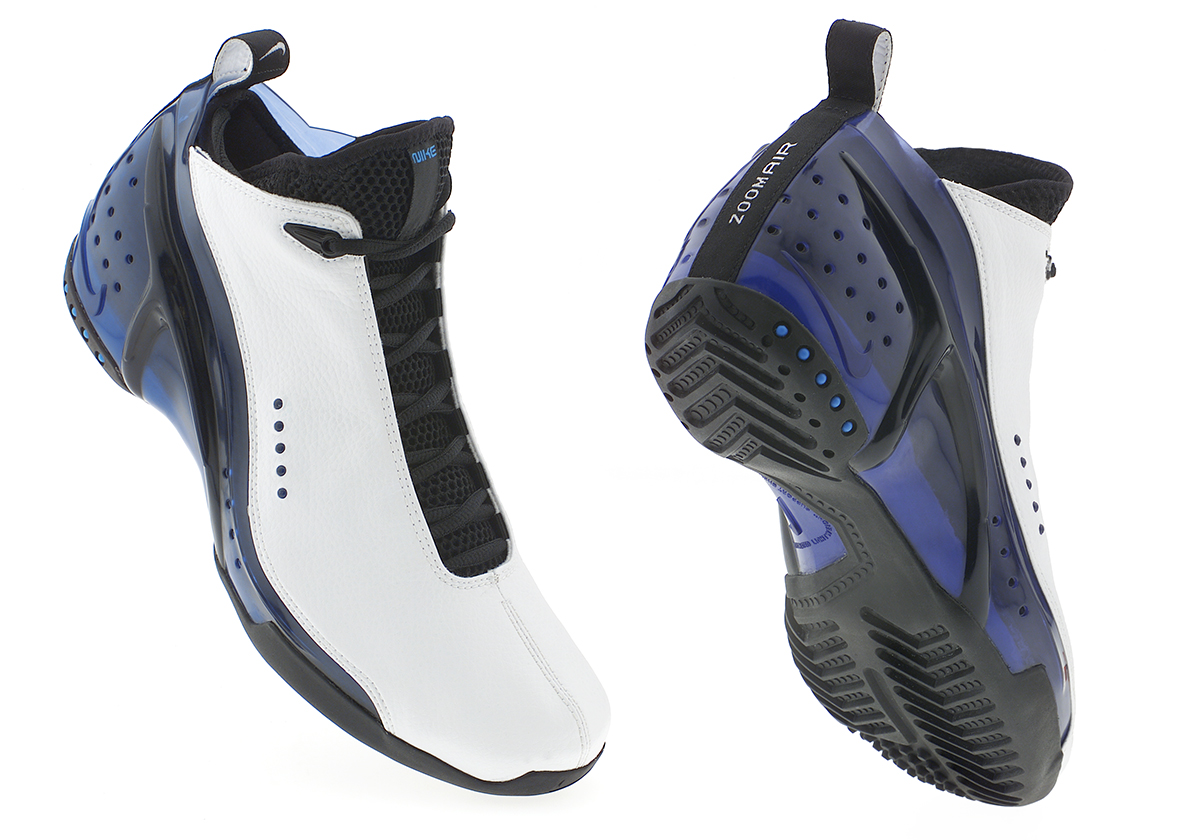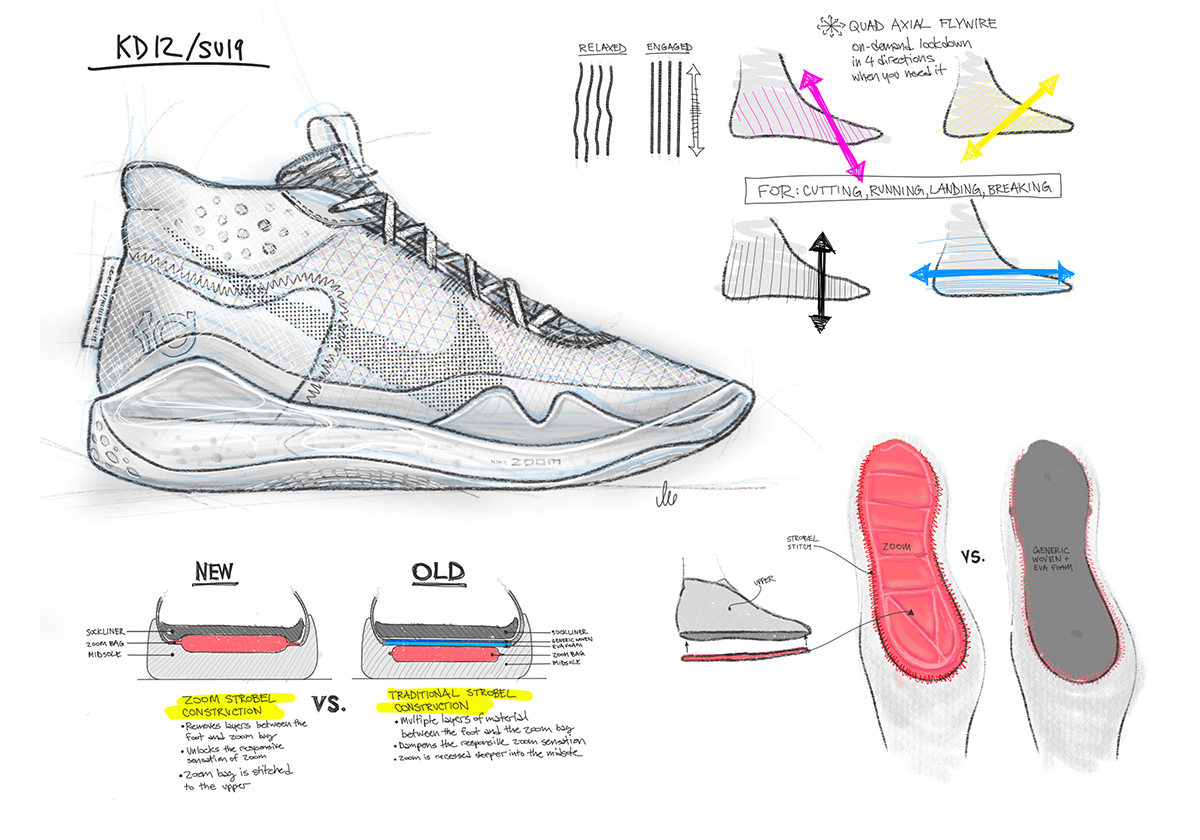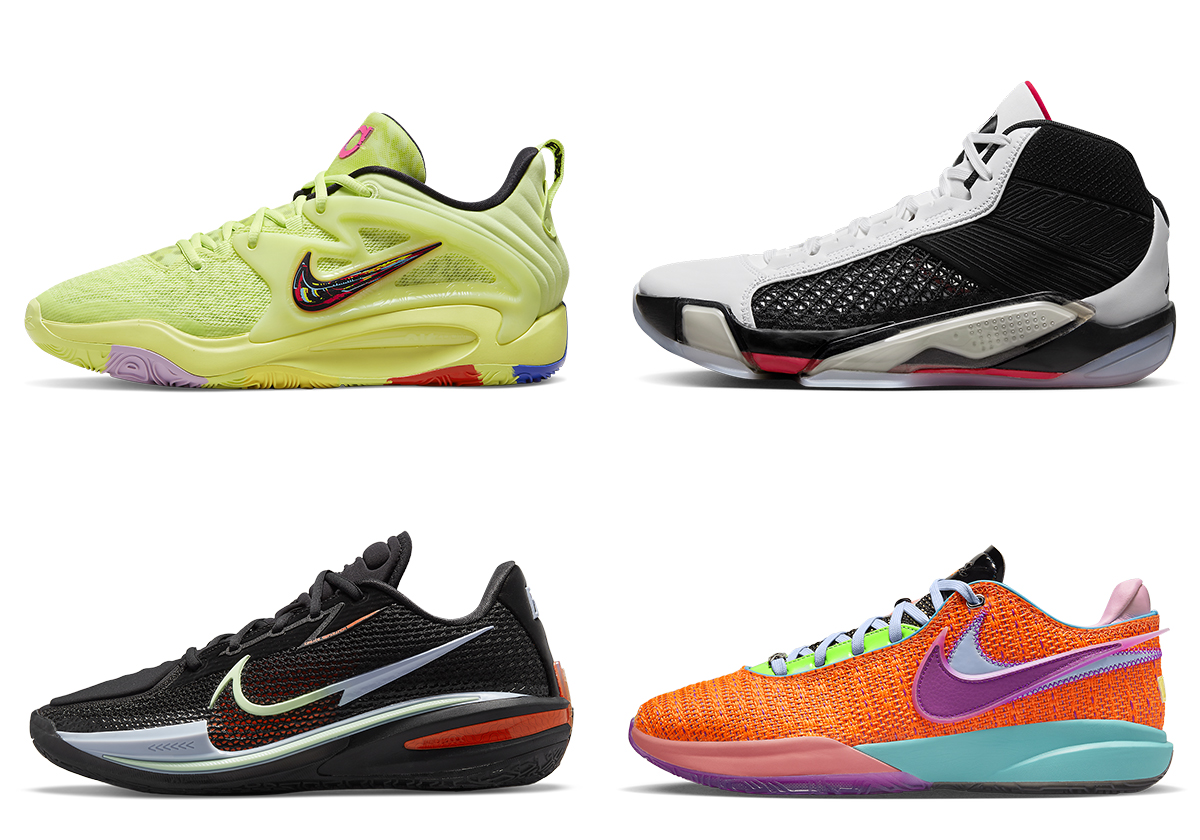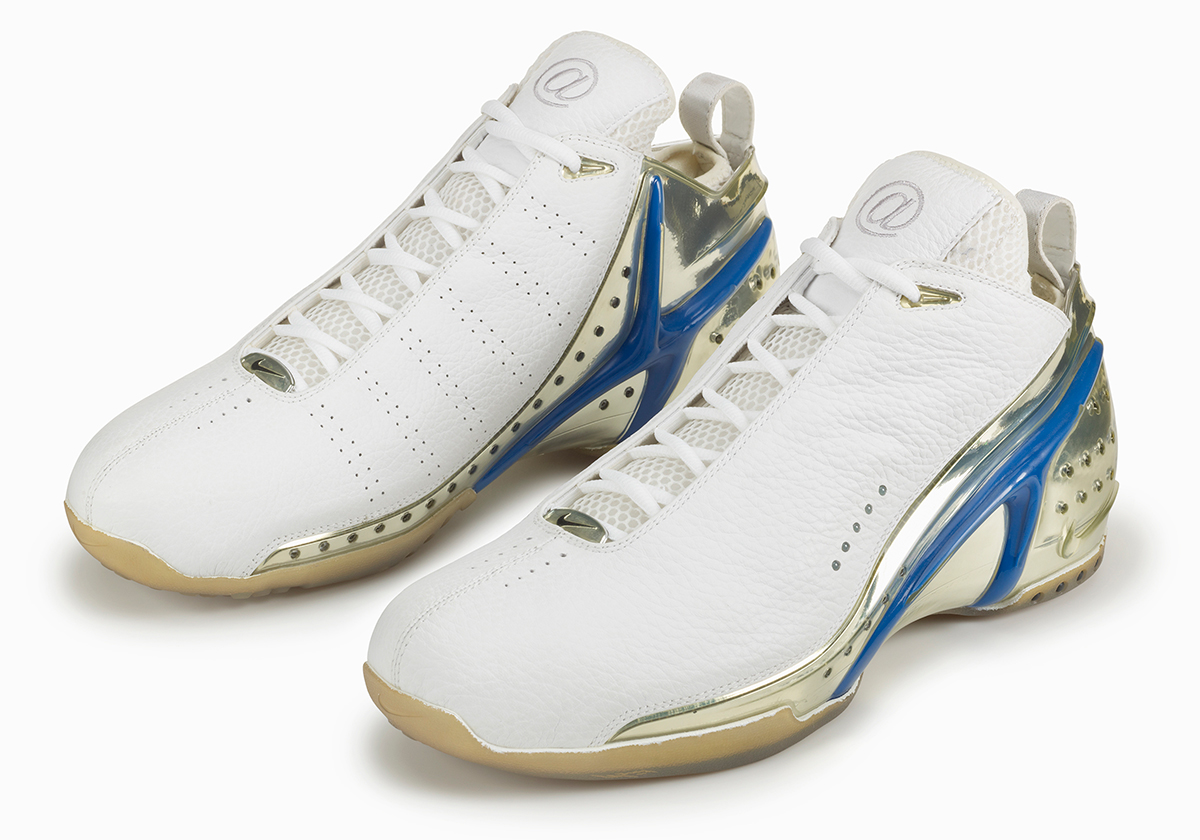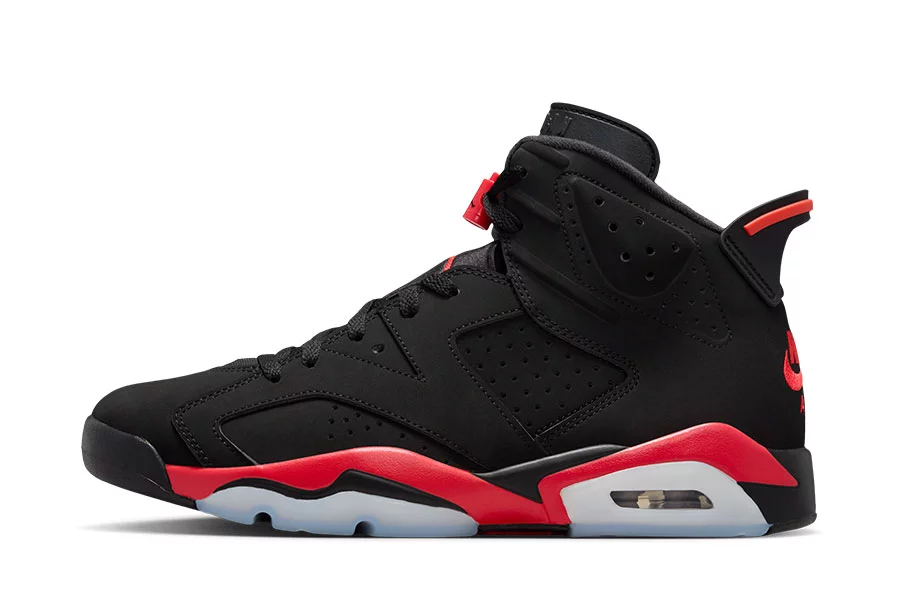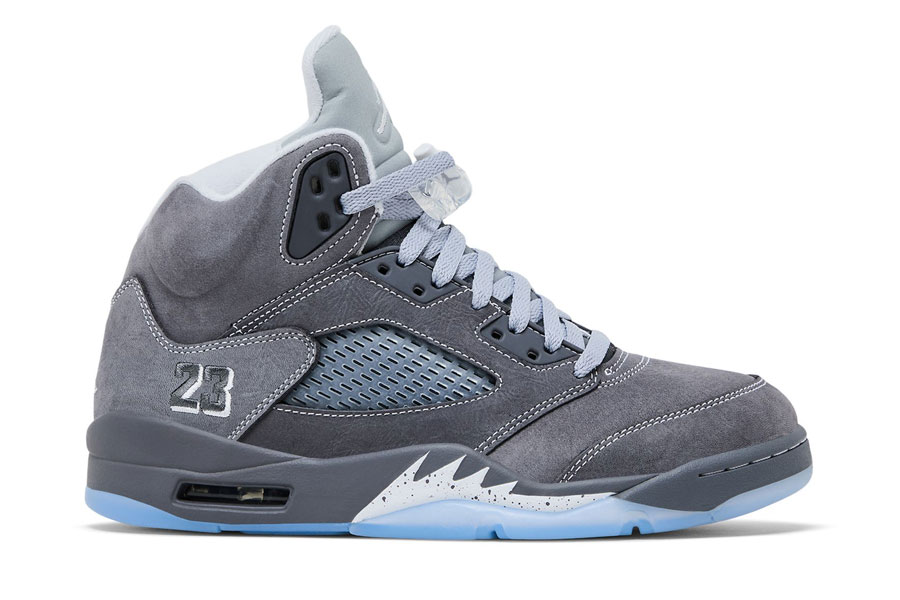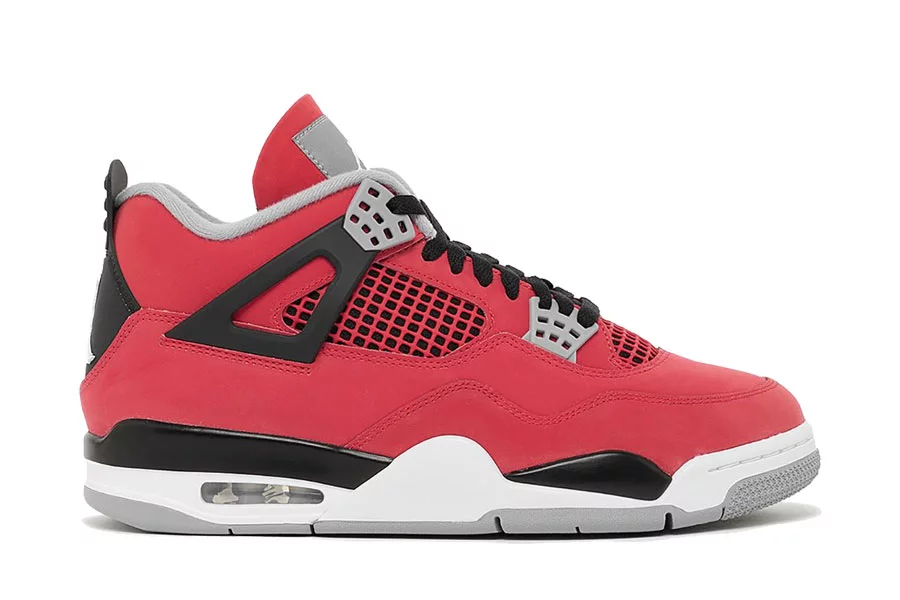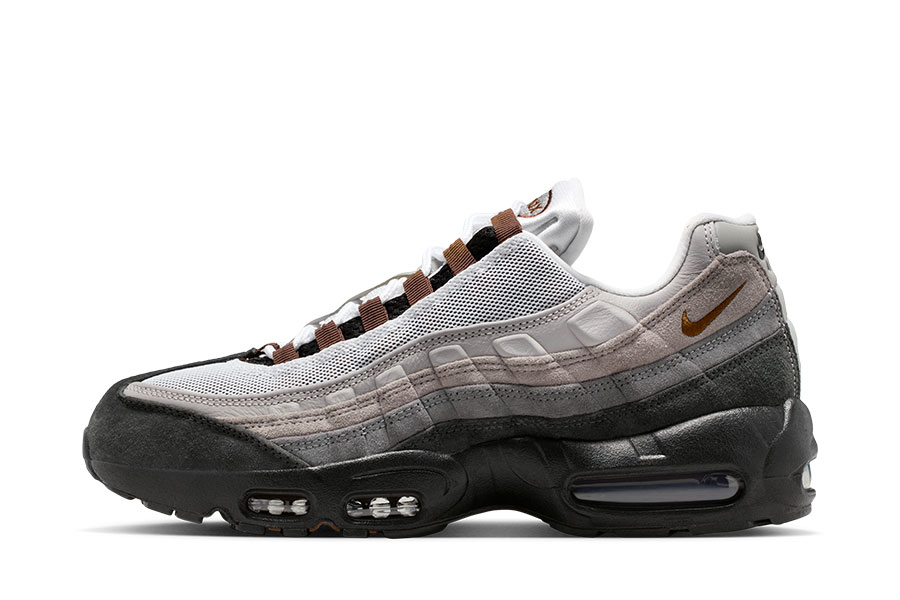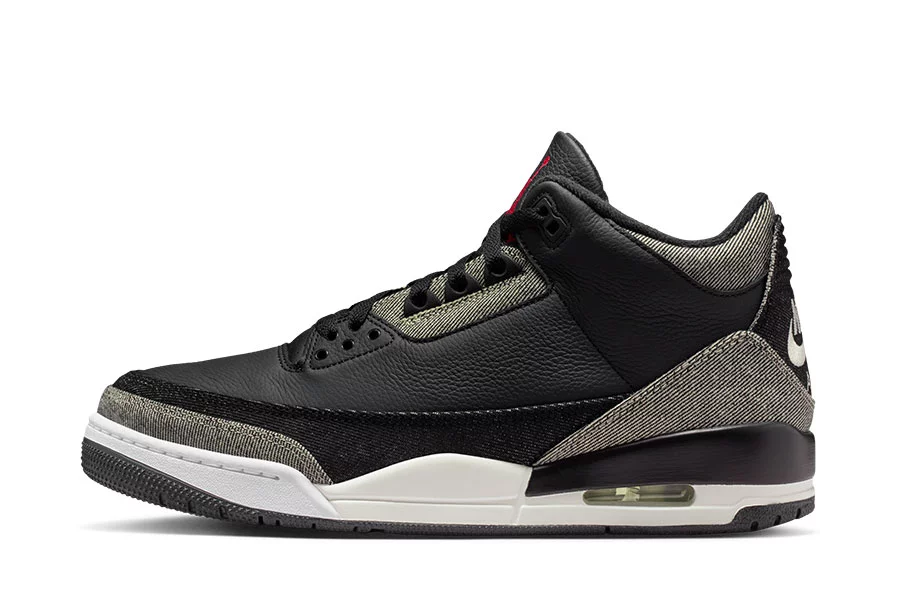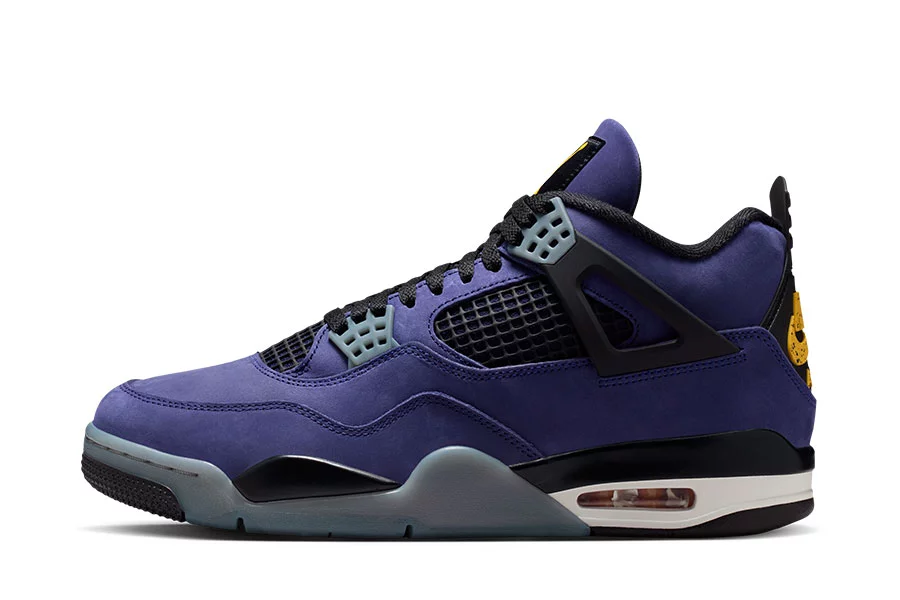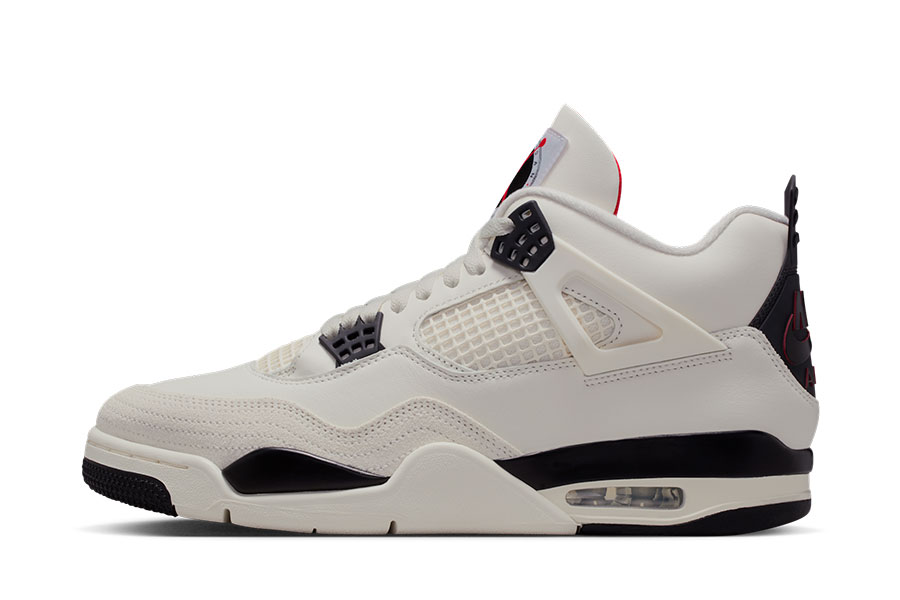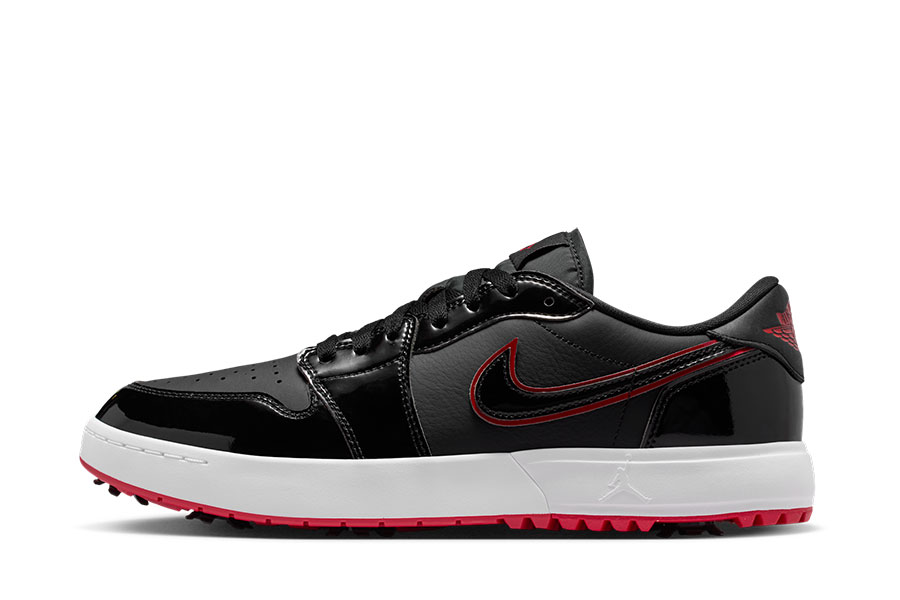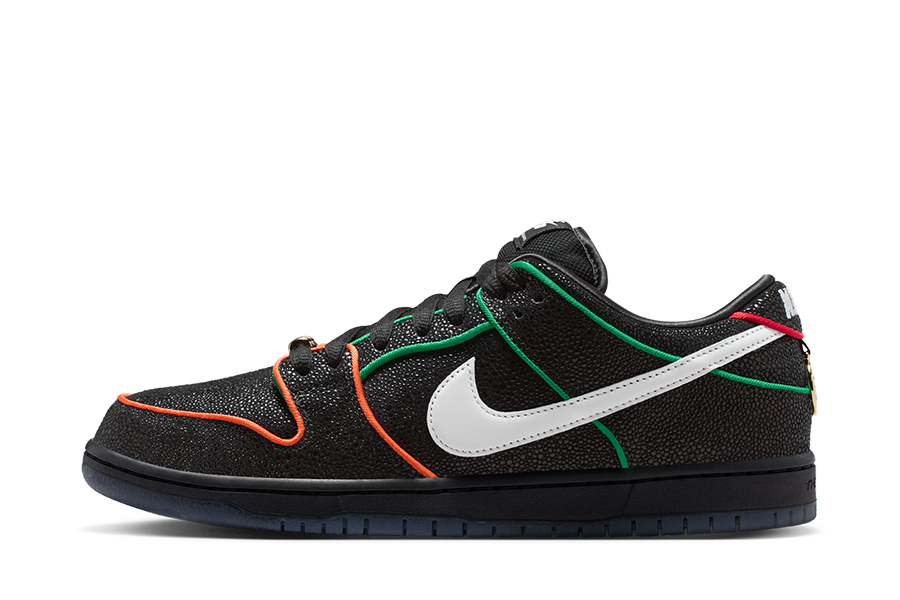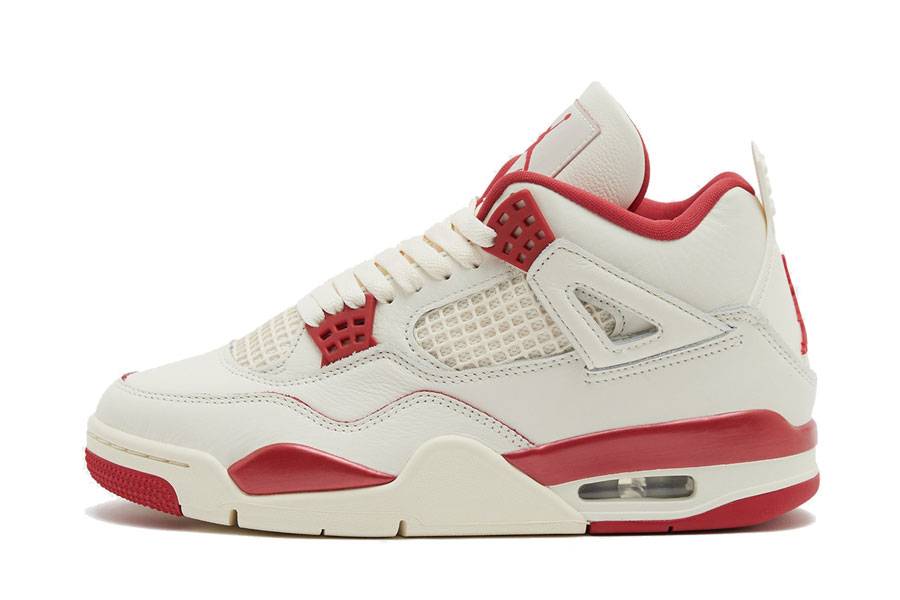Aaron’s purpose as a shoe designer is to serve people at an empathetic level — to provide something an athlete didn’t know they even needed. In his years working with the most extreme athletic freaks to ever walk this planet, it’s their collective reaction of “surprise and delight” that gets his juices flowing, adding “there’s no better feeling than revealing a shoe to an athlete, and they’re telling me ‘wow, I didn’t even know that was possible’.”
His strategy for taking on seemingly impossible tasks is to gather what he’s absorbed from his years — traveling the world, working with athletes, admiring good design — and putting it all in a metaphorical blender. He pieces together the truths and adds that distinct Aaron Cooper vision with a perfect weighted balance of form and function. “That balance…all built for the human body, is Nike at its best. That’s how it all started. That’s Bowerman.”
This merging of balance, empathy, and surprise is at the core of the Zoom Ultraflight. Originally dropping in 2003 and worn by the greatest wizards to manipulate a basketball, the Ultraflight is evidence of Aaron’s effective design as well as how his past findings informs the present and future of Nike’s performance innovation.
Our third installment of #SNEAKERSTORYSUNDAY begins just ahead, but be sure to follow @aaron.ac.cooper on Instagram to continue on his storytelling journey.
“…I wouldn’t go there for any one thing, but I would go there for everything.”
Aaron on the influence of New York City
New York City is a hub for culture and straight up vibes. For Aaron, it continues to serve as a crucial generator of creativity. He recalls his various hangs with Bobbito Garcia: “If I could stoke him, I knew I was doing something right. If he could stoke me, I knew I was taking something home.”
A typical NYC visit included a journey down the island of Manhattan on foot; Aaron would absorb all the energy produced by the local shops, the streetball, the art, and other authentic theatrics of the city. From Harlem all the way down to SoHo, he would soak it all in like a sponge (see: Sponge, Domino, Butterfly), and a trip to the Big Apple did not pass without a stop at Paragon Sports in the Flatiron District.
During one particular store visit, he and fellow designer Eric Avar were enamored by a snowboarding helmet that had a smokey clear casing with the insulating foam completely visible. This sighting served as a key domino that would lead to something greater.
Aaron worked closely with the speediest guards in the NBA. He described Gary Payton, Steve Nash, and Jason Kidd as “Ferraris on the court” for their ability to go 100 miles per hour on a court and turn on a dime. GP, Nash, and J-Kidd were the rare type of elite guard that blew by defenders and had the ball kiss off the glass for two before the opponents even had a chance to gather.
Aaron liked to use cars as a performance analogy, often asking himself if what was possible on the road was possible for the hardwood. Could he and the team create a shoe that can go at full speed and turn on a dime? How can we serve these extreme athletes like Jason Kidd, who can split open the side of the foam of a sneaker with one of his cuts? Could we create a performance vehicle for the court?
“Can we show this monster engine under the transparent hood, juxtaposed with hand-stitched Italian leather?”
Aaron on the the design direction of the Ultraflight
The dominos were in place: the clear snowboarding helmet from Paragon Sports, the dialogue around “Ferrari on the court”, working closely with extreme athletes like Kidd, Nash, and Payton, seeing what’s happening in the automotive world. At the time, the Italian auto maker had just introduced a clear glass engine cover to display the incredible technology to spectators. Specifically, it was the F360 Modena that debuted this awesome detail that has been replicated by other supercar manufacturers since.
Concurrently, Nike’s Track & Field team had created a “Cinderella Spike”; this “glass slipper” for an Olympic-level sprinter was a completely clear and see-through shoe meant to show off the human foot. Cooper and Avar knew it would be cool to show the performance materials and provide the athlete with the highest performance “driving” experience on the court.
“…if you have style without performance, at best it’s just a fad.”
Aaron on the importance of balancing style and function
Long before his sneaker design days, Aaron was an avid BMX racer, earning the top ranking among 10-year-olds in the state of Washington. He recalls drilling literal holes into the parts of his bike to the point of near-failure, all in an effort to reduce the weight of his bike for that competitive edge.
He was also inspired by the insane athletes of Moto GP, who moved at insane speeds and in different directions with the utmost of control. Later, he was heavily inspired by modern, high-end office furniture largely due to their perfect balance of beauty and function that could be mass-produced. Nike sneakers are very similar in that sense: high-powered, practical in function, built for the body, and made for the masses.
These elements from Aaron’s childhood to his growth as a designer all convey in his work. He states that “design is about form following function – art and science working symbiotically together” while pointing to a Ferrari poster he has framed on his wall. This poster reads “There is no performance without style” to which Aaron adds “if you have style without performance, at best it’s just a fad.”
Going back to the “glass slipper” that was being created by Nike’s Track & Field team, Aaron and the team created their own transparent sneaker he calls a “foot bucket”. The widespread feedback from the wear-testers was that they were too painful to wear; each test lasted literal seconds. No amount or special type of socks could protect the foot. Aaron prefers learning through his own experience, but he was unable to try the prototype on his own because it was only made in a testing size (Aaron is a 12.5).
Aaron believes creating good product for others requires empathy, and in this case Aaron had to listen to the testers to properly evolve the shoe. Aaron calls this one of the most challenging process because he could not experience it for himself, but mostly because the task was deemed “not possible”. How do you create something playable and set a new performance standard on the basketball court…from a non-wearable prototype?
“Design is about form following function…art and science symbiotically working together.”
Aaron on the importance of balance in design
Based off the feedback from the testers, Aaron sought out to create the most plush lofted internal bootie to fix the issue. At the time, he was impressed by a specific mesh called OS Meshler, a 4mm thick mesh that was super light and comfortable.. He was also inspired by a particular high-end office chair that had lofted mesh. Using those two points of focus, he worked with a vendor to create the thickest possible spacer mesh at 6mm, and to this day it’s one of the most comfortable mesh materials ever created. It’s thick and plush, but high performing, lightweight, and breathable.
From his experiences drilling holes into his bike, Aaron added holes to the TPU shell to further reduce the weight. That shell was combined with an evolved, refined form of the “monkey paw” containment system that fused its lateral and medial stability with torsional stability.
Up top, Aaron juxtaposed the “engine” of the Ultraflight with the aesthetic of the hand-stitched Italian leather of the supercar’s interior. It almost split the shoe in half, but it was really about placing two extreme opposites together and balancing them out perfectly.
For cushioning, the intent was to use a drop-in full-length Zoom insole (double-stacked at the heel) that was removable. The goal was to have the foot directly touch the Zoom bag for maximum cushion, but in the end, the insole was cemented in.
The Zoom Ultraflight’s injection mold was one of the most expensive ever made because it was the largest injection mold ever created. It required the utmost in precision because it had to be injected twice to achieve one mold, and perfecting that automation process is costly.
This is where pricing is a matter of balancing the numbers. Like the Air Foamposite One and even the Shox VC1, Nike may lose a margin on a product that features new tech and engineering, but will make it back and profit in the long run once the manufacturing processes get more efficient. As stated in the Shox VC1 feature, Nike is best in establishing a fair value, a valid statement considering the Zoom Ultraflight only cost $125 at MSRP.
The Zoom Ultraflight debuted back in 2003, but its influence on modern basketball shoes still persists. As mentioned earlier, Aaron and the team intended for a drop-in, removable insole that was full-length Zoom Air with maximum coverage. That original idea is viewed as one of the earlier dominos that led to the creation of the full-length Zoom strobel, which is now the standard for Nike’s high-end performance basketball models. Pictured below are four modern day examples of basketball shoes that have utilized the full-length cushion.
This is just another example of Aaron’s “Sponge, Dominos, Butterflies” principle and how important it is to creative positive momentum regardless of whether or not you get the credit for something later on.
Here’s an awesome fact: did you know Nike created a chrome version of the Zoom Ultraflight? This was a true one-of-one that was gifted to Aaron for the great work he was doing for the brand. The translucent “bucket” was replaced with a shiny metallic chrome and even featured Aaron’s personal logo and signature on the tongue.
He ended up gifting them back to Nike’s Department of Archives as he viewed them as an important piece of brand history. There aren’t many sneakers in history out there like this one, and in this era where shoes are selling for high prices on auction houses like Sotheby’s, can you imagine what this rare piece of history would go for?
Read more from the #SNEAKERSTORYSUNDAY mini-series here: Shox VC1 / Shox Stunner

